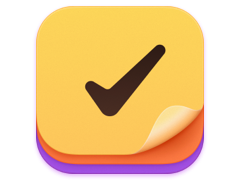By John Gruber

Finalist for iOS: A love letter to paper planners
Linked List: October 28, 2010
Thursday, 28 October 2010
- This Year’s Trend in Mac Toolbar Icons: Monochrome ★
-
More cues taken from iOS.
- Joe Wilcox on Microsoft’s Q1 2011 Numbers ★
-
So, yes, it was a good quarter for Microsoft, but there are a couple of “buts”. For one thing, Apple has, for the first time, surpassed them in revenue (and it wasn’t even close). But here’s the other thing: net income by division:
- Windows and Windows Live: $3.32 billion
- Business: $3.39 billion
- Entertainment and Devices: $382 million
They boast about Xbox sales in their statement, but profit-wise, it’s just a drop in the bucket compared to Office and Windows. Worse, the Online Services division posted another big loss: $560 million in the hole.
- GoogleTV Twitter App ★
-
90-second clip from the latest episode of The Engadget Show, shows the brilliant UI of the Google TV Twitter client. (Thanks to Milind Alvares.)
- Microsoft Profit Jumps 51 Percent With Record Q1 Revenue ★
-
Office and Windows, going strong.
- Adobe Demos Flash-to-HTML5 Conversion Tool ★
-
The wheels are turning.
- Amazon Windowshop ★
-
New iPad app from Amazon — more or less an iPad-optimized front-end to all of Amazon.com. Really nice, and a great example of a native app that serves as a complement to a website, rather than a replacement. Native apps like Windowshop aren’t against web apps. It’s simply about how to create the best experience.
- ‘AppleScriptObjC Explored’ ★
-
New e-book by Shane Stanley:
AppleScriptObjC Explored by Shane Stanley is the most advanced, thorough, and in-depth documentation for the creation of AppleScript Objective-C applications.
Includes a ton of example code.
- Rising Sales of Droid Phones Boost Motorola ★
-
Bloomberg:
Motorola Inc., the U.S. mobile-phone maker, reported third-quarter earnings that beat analysts’ estimates and a revenue increase for the first time in almost four years on rising sales of its Droid handsets.
I think you can make the case that Android saved Motorola’s mobile phone business. But:
Sales from its handset business climbed 20 percent to $2 billion last quarter, helping to narrow its loss to $43 million from $216 million a year earlier. The division had an operating profit, excluding some charges, of $3 million. Motorola said it shipped 3.8 million smartphones last quarter, beating Thornton’s estimate of 3.6 million units.
Shouldn’t they be more profitable? $3 million in profit is less than a dollar per smartphone sold. What am I missing here?
- New Version of Gmail for MobileSafari ★
-
Brett Lider, for Google:
Go to gmail.com from your iPhone and you’ll notice two improvements we’ve rolled out over the past few weeks. First, scrolling is snappier: the speed of scrolling reflects the speed of your swipe gesture. This is helpful for long conversations where a few quick flicks will get you to the information you need much faster than before. Second, the toolbars stay on screen while you’re scrolling rather than moving down into view after each scroll.
The scrolling is great. Worth checking out on both the iPhone and iPad — very strong work. (Why specify Arial instead of Helvetica, though?)
- White Out ★
-
As of last night, the white iPhone 4 was still pictured on the main iPhone page on Apple’s online store. Not anymore.
- Khoi Vinh on iPad Magazine Apps ★
-
Khoi Vinh:
My opinion about iPad-based magazines is that they run counter to how people use tablets today and, unless something changes, will remain at odds with the way people will use tablets as the medium matures. They’re bloated, user-unfriendly and map to a tired pattern of mass media brands trying vainly to establish beachheads on new platforms without really understanding the platforms at all.
- The Genius of the Genius Bar ★
-
Duncan Davidson:
I wonder how many other issues in Apple products get addressed, in part, because of the data gathered in Apple stores by Apple employees. There are several trends in Apple’s product design, but a very clear one is the simplification of parts that can break. The unibody laptop design not only introduced a stronger case, but a simpler one as well. For example, they eliminated the little magnetically retractable latch in the lid of the laptop. The way it worked with magnets was cool. Designing the hinge so that it wasn’t needed at all is much cooler.
- Nintendo Hits Financial Slump ★
-
Nintendo is complaining about the yen’s strength against the dollar, but their big problem is that both the Wii and DS are getting long in the tooth.
